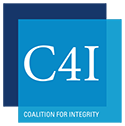International Development

Corruption in international development projects causes serious harm. First, it undermines the economic, political, and social development of the countries it is supposed to benefit. And secondly, it steals from the taxpayers of the countries providing foreign aid.
Governments around the world provided over $130 billion of foreign aid to developing countries in 2013. The United States is the largest donor nation, spending over $30 billion on international development assistance. In addition to foreign aid provided directly by governments, multilateral development banks such as the World Bank contribute tens of billions of dollars more in development assistance.
Foreign aid most often takes the form of grants or loans for specific projects agreed upon between the donor nation or organization and the beneficiary nation. Development assistance dollars are often spent through the public procurement process, as donors or recipients contract with private firms to supply goods, works, or services.
We at Transparency International-USA believe that foreign aid dollars should be spent wisely, cleanly, and transparently. Foreign aid should aim to improve governance and institutions, strengthen the rule of law, and reduce corruption. Donor nations and organizations should implement policies and procedures that make foreign aid less vulnerable to corruption, particularly with respect to public procurements. Our work on this subject falls into three different focus areas.




